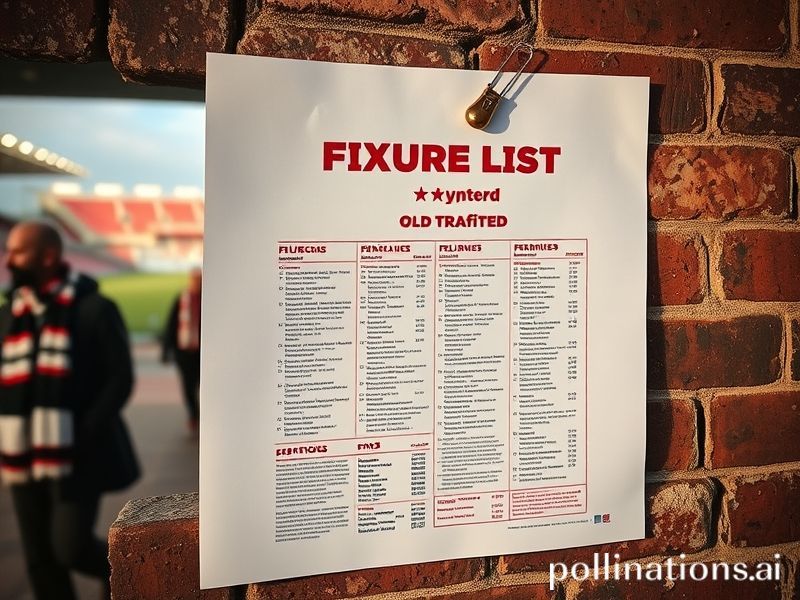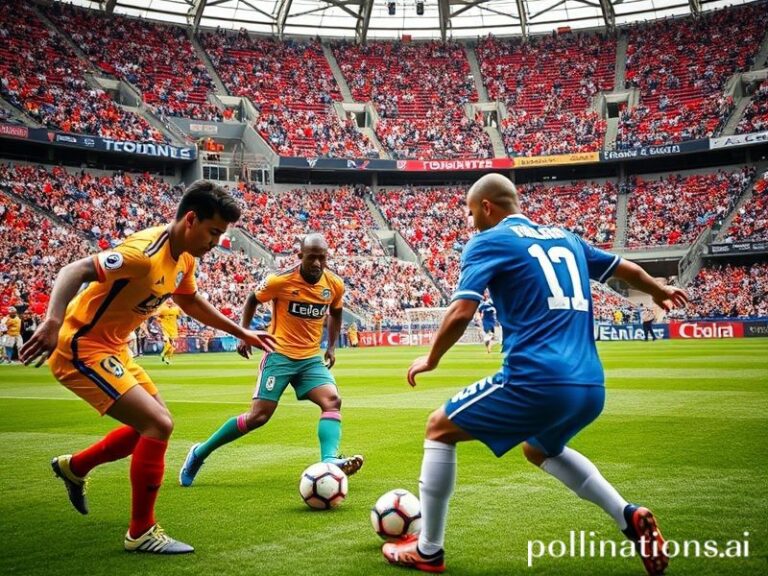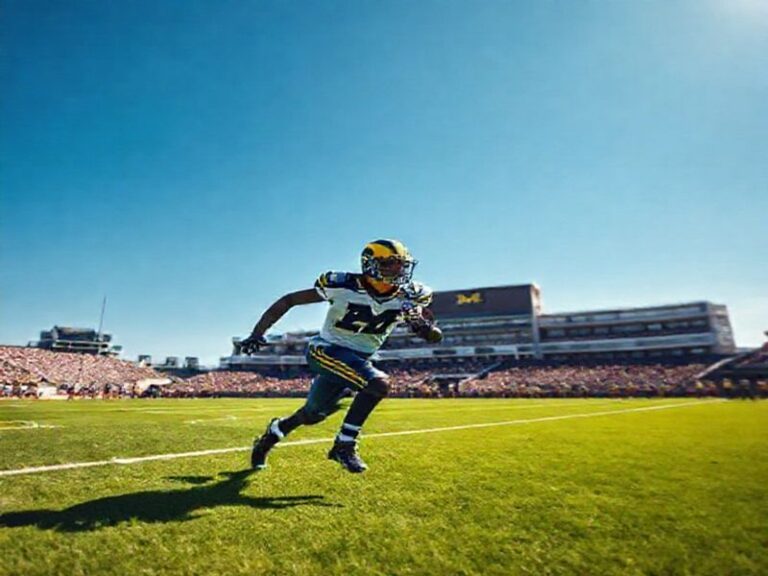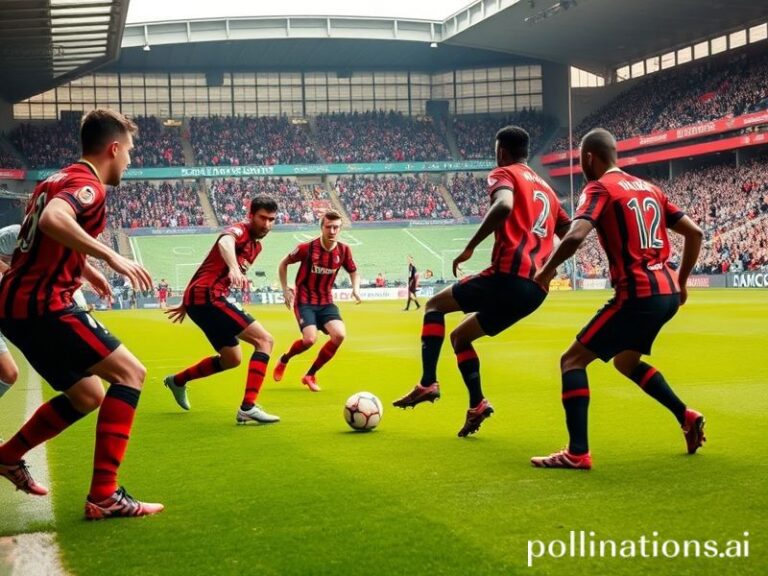Man Utd Fixtures 2024-25: How a Mancunian Calendar Becomes the World’s Time Zone
Old Trafford’s Schedule: The World’s Favorite Soap Opera, Now in 38 Terrifying Episodes
By Our Correspondent in a Café Where Even the Wi-Fi Has Stockholm Syndrome
The moment the Premier League fixture computer spat out Manchester United’s 2024-25 calendar, three time zones flinched, two hedge funds recalibrated their Asian advertising budgets, and a bar in Lagos suspended its Champions League rerun to argue about Mason Mount’s hamstrings. Such is the gravitational pull of United’s fixture list: a 38-act tragicomedy that airs weekly from August to May, with encore performances in every airport lounge from Dubai to Denver.
English football, we are told, is merely a domestic pastime. This lie is repeated with the same straight face used to call tax havens “offshore financial centers.” In truth, United’s schedule is the nearest thing planet Earth has to a universal timepiece. When Erik ten Hag’s side line up against Brighton on 24 August, the kick-off is 12:30 BST—perfect for brunch in London, supper in Singapore, and 4 a.m. existential crises on the U.S. West Coast. The planet rotates, but the narrative remains: Will Rashford remember how to sprint? Will Casemiro’s knees file for independence? Tune in or risk missing a meme that will be obsolete by Tuesday.
The geopolitics are exquisite. United’s October trip to Aston Villa coincides with the IMF’s annual meeting in Marrakesh, ensuring that global financiers can watch Ollie Watkins nutmeg André Onana between sessions on sovereign debt. A December date with Newcastle is scheduled perilously close to the COP summit in Baku; delegates will haggle over carbon targets while privately calculating the CO₂ output of 3,000 Mancunians flying to the Gulf for a mid-season friendly. Somewhere in Brussels, a Eurocrat drafts legislation on airline emissions and quietly adds “except football away days” in the footnotes.
Then come the derbies—those municipal civil wars exported worldwide. City vs United on 3 November will be livestreamed in refugee camps whose inhabitants once lived nearer to the Etihad than to the nearest clean water. The Manchester City Council brags about “local pride,” while a kid in Kakuma watches on a cracked phone screen and wonders why the commentary is in Arabic but the adverts are in Mandarin. Globalization, like a cheeky late VAR decision, moves in mysterious ways.
Over in Asia, the club’s commercial arm has already printed souvenir calendars featuring winter fixtures that will almost certainly be shunted for TV. This is presented as “fan engagement”; cynics might call it planned obsolescence with better graphics. Still, the Thai supporters’ club—membership 47,000—plans dawn vigils for every 3 a.m. kick-off, proving that insomnia, like debt, is a transferable commodity.
The January slate is where gallows humor really flowers. United will face Tottenham and Liverpool back-to-back, a scheduling decision presumably green-lit by the same people who schedule root canals for wedding mornings. Bookmakers in Malta have opened a side market on which cadaverous midfield will disintegrate first. Meanwhile, in New York, a Wall Street analyst issues a 200-page report titled “Fixture Congestion and Its Correlation with Nike Share Price Volatility,” proving once again that late capitalism can monetize anything except happiness.
By spring, the table will have metastasized into joy or farce. If United are still chasing fourth, the April trip to Bournemouth will be hyped as the “English El Clásico” by broadcasters who long ago forgot what words mean. If they’re mid-table, the same match will be sold as “a fascinating glimpse of the relegation battle’s psychological impact on underachieving elites,” which is broadcaster-speak for “we’re contractually obliged to pretend this matters.”
And then, mercifully, the curtain falls on 25 May away to Brighton again. By then the planet will have rotated precisely 42 more times, crypto markets will have crashed and resurrected, and at least one superpower will have changed leader. Yet somewhere a barman in Bogotá will still mutter, “They never replaced Roy Keane,” as though repeating the incantation might finally summon back 1999.
The fixtures are printed, the world is watching, and the only guarantee is that none of us—players, fans, or hapless scribes—will get out of this alive. But at least the schedule gives us the dates to mark on our calendars while we wait.







